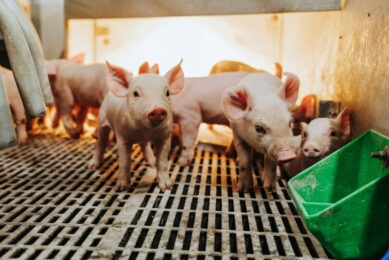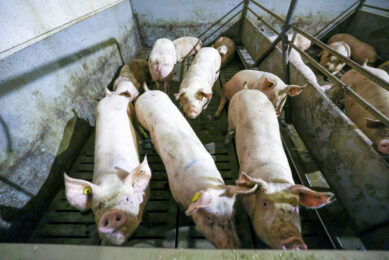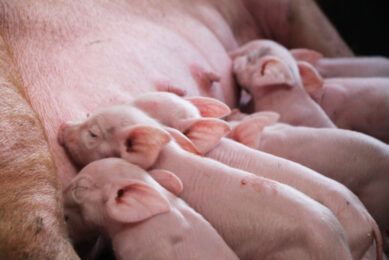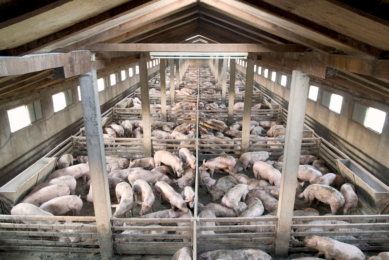Denmark: New PRRS strain emerged
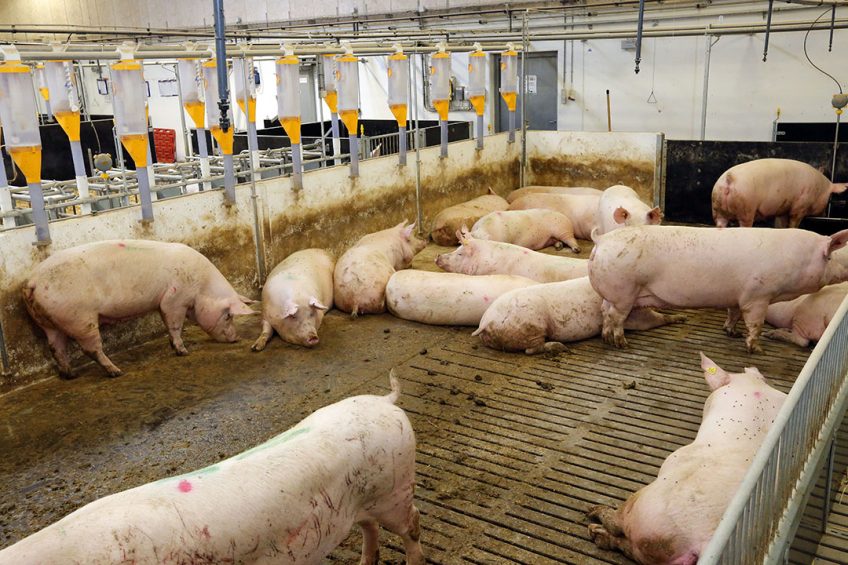
A new PRRS strain emerged in the Danish pig sector this summer. In total about 35 Danish swine farms were hit. The damage is especially substantial on swine farms where vaccinating for PRRS was not commonplace.
Several so-called PRRS naïve farms were populated with sows that had never before been exposed to the virus – and hence did not have any resistance. The result of that all is dead piglets or piglets in a bad condition.
PRRS vaccine got banned
The culprit is a recombinant PRRS strain which emerged because virus traces from 2 vaccines were present simultaneously inside one pig. That caused a new PRRS-strain to come into existence. The situation occurred when one farm changed its vaccine.
One of the vaccines included is Suvaxyn PRRS MLV, produced by Zoetis, a vaccine that was only introduced on the Danish market relatively recently. For now it has been taken off the market again by the Danish Ministry of Environment and Food. The other vaccine was manufactured by Hipra, both were identified by sequencing. Against the latter vaccine no steps have been taken.
Zoetis responded with discontent about the decision of the Danish authorities, as the company fails to see why its vaccine has been taken off the market. The company argued that it is a well known phenomenon that PRRS virus mutates regularly, something which has been proven more than once. The company feels supported by the European Medicines Agency (EMA), which does not see a reason to copy the Danish decision for the whole of Europe.

Read also: Every pig producer can limit consequences of PRRSv
No pig semen deliveries outside Denmark
In total about 35 producers got infected as the virus got distributed through a boar stud. The virus was then distributed through semen, according to Per Nyby Pedersen, director of Hatting, which produces boar semen for artificial insemination (AI). The infected semen was only delivered to farms in Denmark.
It is unclear how the virus reached the boar stud. Pedersen said it is most likely that this happened through the air. After all, the same virus strain was found in a sow farm at 5km distance from the boar stud. At that farm, the Zoetis vaccine was used as well as Hipra’s Unistrain vaccine. The recombinant virus is therefore likely a product from these 2 vaccines. At the boar stud, the virus was found late July and it must have been around for a few weeks prior. The boar stud tests from time to time for PRRS.

Read more about pig production in Denmark
PRRS virus has been very aggressive
In total, Hatting has about 600 customers throughout Denmark. Of those farms, about 3-5% has been affected by the new virus. On some farms, up to 50% of the piglets have died. Pedersen stated that the virus has been very aggressive.
In the meantime, the Hatting boar stud has been completely repopulated. At this stage, Pedersen cannot say what the total damage will be – and whether or not pig producers will claim damages from his company. At some farms, the virus still continues to be a problem.



